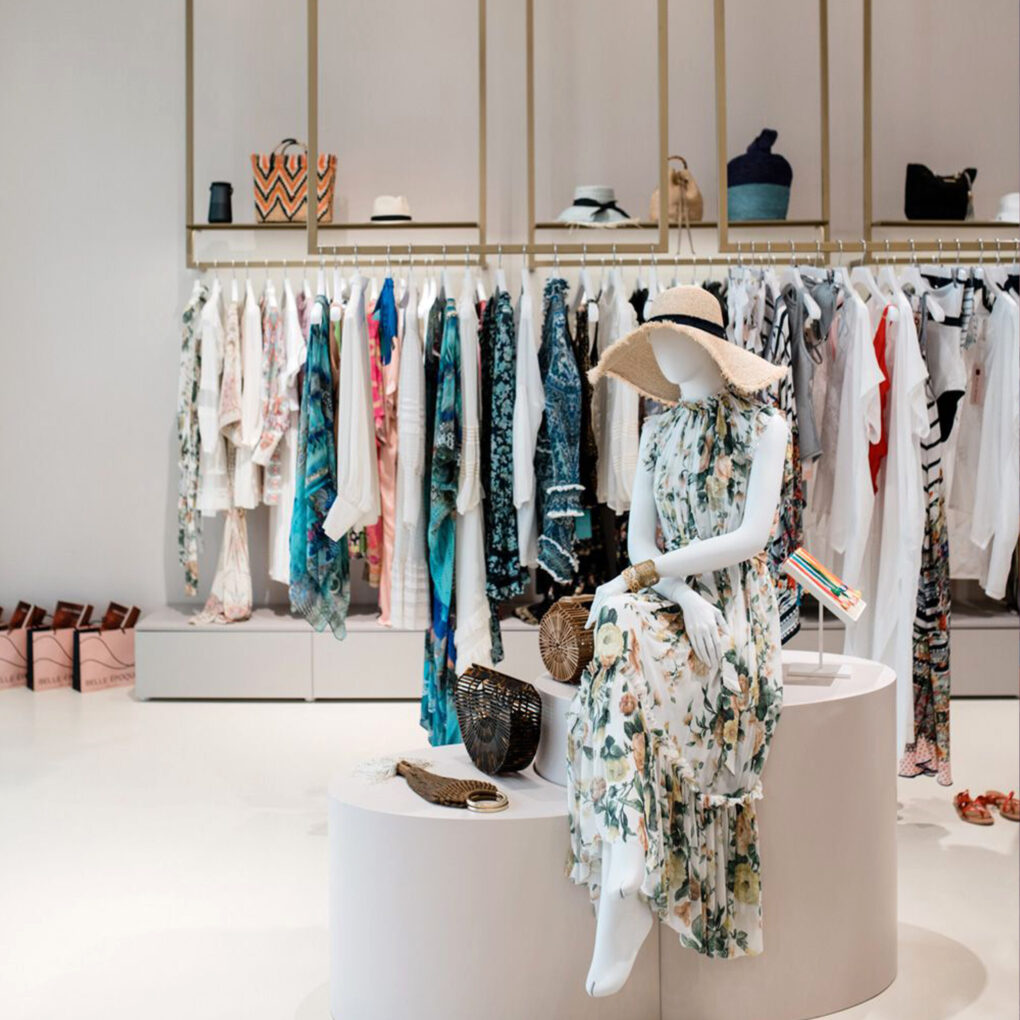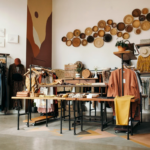Introduction
Are you a boutique owner searching for the best clothing vendors to stock your store? The process of finding reliable and high-quality clothing vendors can be overwhelming, but fear not! In this comprehensive guide, we will walk you through the essential factors to consider and provide valuable tips to help you discover the best clothing vendors for your boutique. Whether you’re a seasoned boutique owner or just starting out, this article is packed with expert advice to streamline your vendor selection process and ensure your boutique thrives with the finest apparel offerings.
Preparation before searching for Ideal Vendors
Researching Fashion Trends
To start your search for the best clothing vendors, it is essential to stay updated with the latest fashion trends. By researching current styles, designs, and consumer preferences, you can make informed decisions about the type of clothing you want to feature in your boutique. Stay connected with industry publications, fashion blogs, and social media influencers, and attend fashion trade shows to gather insights and inspiration.
Defining Your Boutique’s Niche
Before diving into the search for clothing vendors, it’s important to define your boutique’s niche. Determine the target audience, the specific fashion style, and the overall brand image you wish to project. By having a clear understanding of your boutique’s unique selling proposition, you can narrow down your search for clothing vendors that align with your niche and cater to your target market’s preferences.
Channels to Search Ideal Vendors
Seeking Recommendations and Referrals
One of the most effective ways to find reliable clothing vendors is through recommendations and referrals from industry professionals and fellow boutique owners. Attend networking events, join online forums and communities, and engage with other entrepreneurs in the fashion industry. By building relationships with like-minded individuals, you can gain valuable insights and access to reputable vendors that are trusted by others in the industry.
Utilizing Online Directories and Marketplaces
The internet provides a wealth of resources when it comes to finding clothing vendors for your boutique. Online directories and marketplaces dedicated to the fashion industry can be an excellent starting point for your search. Websites like KakaClo.com offer comprehensive clothing catalogs including women’s, men’s, and kid’s clothes, allowing you to browse through a wide range of options.
Attend Trade Shows and Exhibitions
Trade shows and exhibitions offer excellent opportunities to discover new and emerging clothing vendors. These events gather industry professionals and provide a platform for vendors to showcase their latest collections. Attend relevant trade shows to connect with vendors, explore their offerings, and establish valuable connections within the fashion industry.
Collaborating with Local Designers
Supporting local designers not only helps the community but also offers an opportunity to showcase unique and exclusive designs in your boutique. Collaborating with local designers allows you to offer your customers a distinct selection of clothing items while fostering a sense of community and supporting local talent.
Factors to Screen and Evaluate Vendors
Once you have identified potential clothing vendors, it is crucial to thoroughly screen and evaluate them before making any commitments. Consider the following factors during your evaluation process:
Product Quality and Reliability
When searching for clothing vendors, the quality of their products should be your utmost priority. After all, your boutique’s success relies on offering customers garments that not only look great but also stand the test of time. Look for vendors that prioritize quality materials, craftsmanship, and attention to detail. Request product samples to check out the quality and check if they offer a diverse range of clothing items that align with your boutique’s style and target audience.
Additionally, research the vendor’s reputation for delivering products on time and their commitment to customer satisfaction.
Minimum Order Quantities (MOQs)
Many clothing vendors require a minimum order quantity (MOQ) for each product or purchase. Understanding the MOQs is essential, as it affects your inventory management and budgeting. Evaluate your boutique’s needs and determine whether you can meet the vendor’s MOQ requirements without straining your finances or ending up with excessive unsold inventory. Strike a balance between MOQs and your boutique’s sales potential.
Pricing and Profit Margins
Pricing plays a significant role in determining the profitability of your boutique. While it’s important to find vendors offering competitive prices, it’s equally crucial to strike a balance between affordability and quality. Avoid vendors with extremely low prices, as it may indicate compromised product quality. Look for vendors who offer fair pricing that allows you to maintain healthy profit margins without compromising on the value you provide to your customers.
Customer Reviews and Testimonials
Look for customer reviews and testimonials about the clothing vendors you are considering. Online platforms and social media channels often feature feedback from other boutique owners and customers. Pay attention to comments regarding product quality, customer service, and overall satisfaction.
Flexibility and Customization Options
Every boutique has its unique style and target market. Look for vendors that offer flexibility and customization options to cater to your specific needs. This could include options for custom colors, sizes, or even exclusive designs tailored exclusively for your boutique. A vendor who understands and supports your boutique’s vision will help you stand out in a crowded market.
Supplier Responsiveness and Communication
Effective communication and responsiveness are crucial when working with clothing vendors. Evaluate their level of professionalism, promptness in responding to inquiries, and willingness to address any concerns or issues that may arise. A vendor who values open and transparent communication will contribute to a successful and long-term business relationship.
Market Trends and Fashion Forecasting
Fashion is an ever-evolving industry, and staying ahead of the latest trends is crucial for boutique owners. Consider vendors who stay up-to-date with fashion trends, provide seasonal collections, and offer guidance on emerging styles. Collaborating with vendors who possess strong fashion forecasting abilities can give your boutique a competitive edge and keep your inventory fresh and appealing to customers.
Long-Term Compatibility and Growth Potential
When selecting clothing vendors, envision a long-term partnership that supports your boutique’s growth. Assess the vendor’s scalability, ability to handle increased orders, and willingness to adapt to your evolving needs. Choosing vendors who are invested in your boutique’s success and growth will result in a fruitful and mutually beneficial collaboration.
Conclusion
Finding the best clothing vendors for your boutique requires thorough research, careful evaluation, and effective communication. By considering the factors mentioned above, you can make informed decisions that align with your boutique’s vision and customer preferences. Remember to prioritize long-term compatibility and growth potential when selecting vendors. Building strong relationships with vendors will contribute to your boutique’s reputation, customer satisfaction, and overall success.
KakaClo is a B2B online clothing marketplace that offers fashion boutique clothes with trending insightful new arrivals every day, covering full catalogs and custom options for clothing business owners who need design customization. KakaClo provides wholesale clothing with an open pack (no MOQ required), which allows you to buy a small batch of samples for trial sales before investing more.
You can consult your dedicated customer manager for any question, with KakaClo by your side, your boutique will flourish and bloom, sign up on KakaClo and start selling now!
FAQs
Q: How many clothing vendors should I partner with for my boutique?
A: It depends on the size and focus of your boutique. It’s generally advisable to start with a few trusted vendors and gradually expand based on customer demand and market trends. Focusing on fewer would be better for vendor management.
Q: Can I negotiate pricing with clothing vendors?
A: Yes, negotiating pricing is a common practice in the fashion industry. It’s essential to maintain open and respectful communication to reach mutually beneficial agreements.
Q: What are the benefits of collaborating with local designers?
A: Collaborating with local designers allows you to offer unique designs, support the local community, and create a sense of exclusivity for your boutique.
Q: How can I stay updated on fashion trends and styles?
A: You can stay updated on fashion trends by following fashion magazines, attending fashion shows, and engaging with influential fashion bloggers and influencers on social media.
Q: Is it important to consider sustainable and ethical practices when selecting clothing vendors?
A: It depends on your development plan, considering sustainable and ethical practices is good for businesses and resonates with conscious consumers who prioritize environmentally friendly and socially responsible products, but sustainability also requires higher investment.







